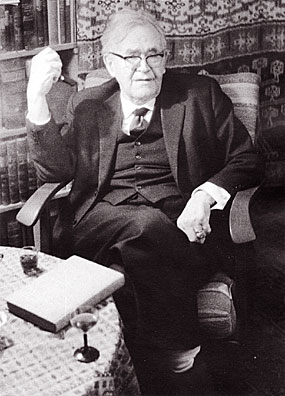 In the semester which has just finished, my class read through much of the first book of Calvin’s Institutes, some enjoying the experience, others bemoaning it. Agree with, or disagree, it is instructive and salutary to engage with the best theological minds of previous generations as we learn to do theology for ourselves. I note that Karl Barth gave the following rationale for reading theological classics:
In the semester which has just finished, my class read through much of the first book of Calvin’s Institutes, some enjoying the experience, others bemoaning it. Agree with, or disagree, it is instructive and salutary to engage with the best theological minds of previous generations as we learn to do theology for ourselves. I note that Karl Barth gave the following rationale for reading theological classics:
The fact that I devote six of the ten hours a week that I usually teach to these exercises stems from the growing conviction that what can be communicated to the student in this form is probably the most immediately fruitful part of academic instruction. The student should be learning, by means of important texts, to read: at first to become aware, quietly and completely, of the content of these texts, to understand what [they have] read in its historical context, and finally to adopt a critical attitude towards it. For this [they need] the stimulation, the guidance and the correction which is given … by a form of collaboration, in which on the one hand [they are] addressed and treated by the teacher as a regular fellow-researcher, and on the other [they have] to consider openly and carefully the attempts of [their] fellow students … It is a matter of preparing the student for teaching by [their] active participation in research. (Barth, cited in Busch, Karl Barth, 352-353.)
Next semester, in my Introduction to Systematic Theology class we will be reading Athanasius’ On the Incarnation of the Word, Luther’s The Freedom of the Christian, Barth’s Strange New World in the Bible, and LaCugna’s Living Trinitarian Faith. I hope it whets the students’ appetite for reading theological classics…